Who we are
Solace, was created to be a consulting resource, during palliative care stages. We believe when faced with a life limiting diagnosis, time with your family is precious, and incredibly important. Solace will help navigate you through the dying process and try to alleviate the stressors of not knowing.
Solace will create a personalized end-of-life plan tailored to your and your family’s specific needs and wishes.
We offer compassionate support to ease uncertainty, answer your questions, and guide you through the unknown.
Solace works alongside your physician and care team as an additional layer of support—helping you navigate this time with clarity, comfort, and care.
When facing a life-limiting illness, surgery may still be part of your journey.
With her deep operating room experience, Karlene can help you understand what to expect, how to prepare, and how to heal after surgery.
She will create a personalized plan for you and your family, ensuring you feel informed, supported, and empowered every step of the way.
Karlene will work collaboratively with your surgeon and care team, providing an added layer of guidance and compassionate support during a complex time

Palliative care can take place even while a person is receiving treatment that could cure their disease. End-of-life care is a part of palliative care that focuses specifically on a person’s needs just before death. It also includes support for family and friends during the grieving process.

Many family members become emotionally and physically exhausted while caring for a loved one with a life-limiting illness.
Solace is here to support you and your family—offering guidance, compassion, and practical help throughout the journey. With Solace by your side, you won’t walk this path alone.
Karlene brings education, experience, and understanding to help you navigate the stages of serious illness with clarity and confidence. She will support not just the individual, but the entire circle of care—family, friends, and loved ones.

Currently serving
Simcoe Muskoka, Kawartha Lakes, GTA, Durham, Prince Edward County and beyond
© SOLACE PALLIATIVE CARE CONSULTING 2022